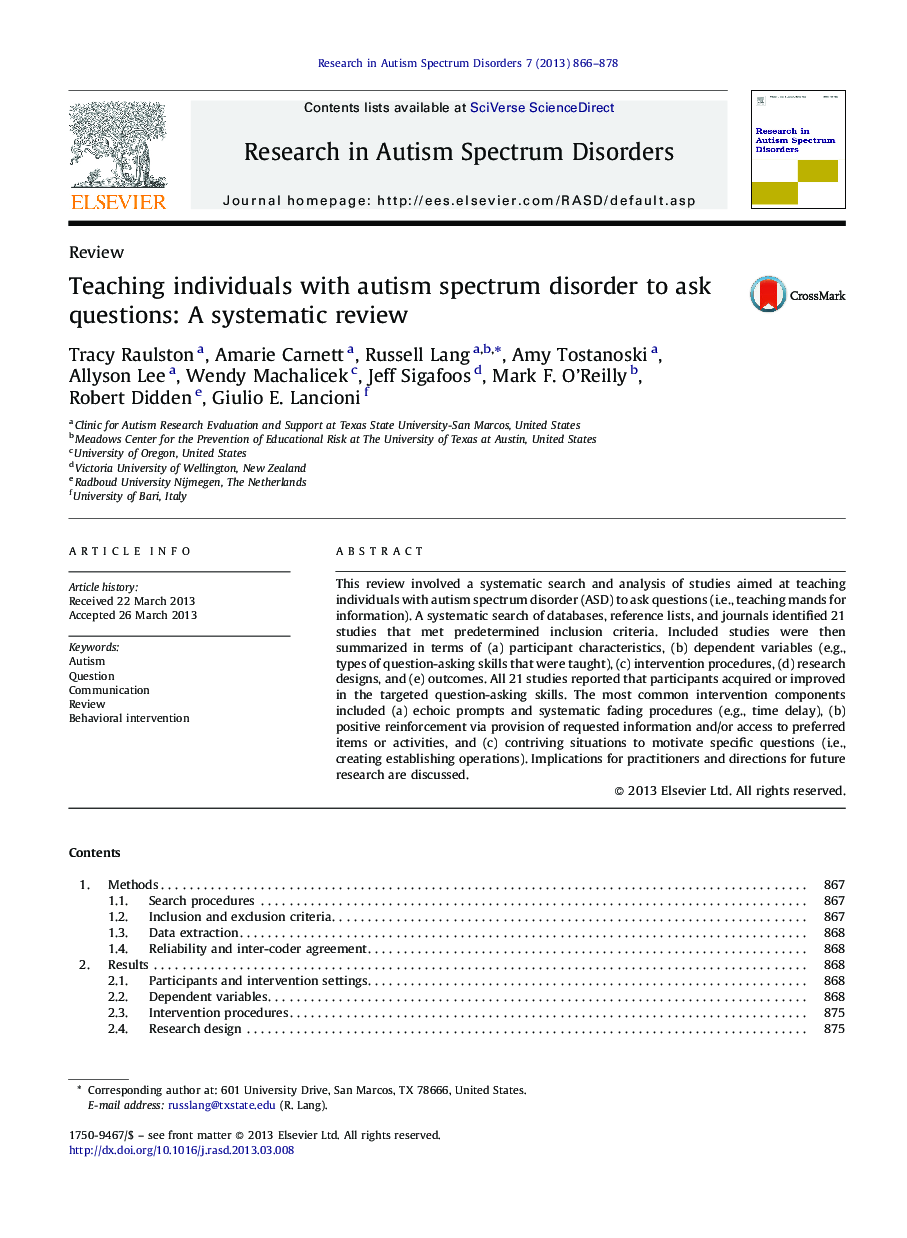| Article ID | Journal | Published Year | Pages | File Type |
|---|---|---|---|---|
| 370392 | Research in Autism Spectrum Disorders | 2013 | 13 Pages |
•We reviewed 21 studies in which question-asking was taught to people with ASD.•All studies employed multicomponent behavioral interventions.•The most common components were prompting, reinforcement, and contriving motivation.•All studies reported positive results for acquisition of question-asking skills.•Generalization effects were mixed across studies.
This review involved a systematic search and analysis of studies aimed at teaching individuals with autism spectrum disorder (ASD) to ask questions (i.e., teaching mands for information). A systematic search of databases, reference lists, and journals identified 21 studies that met predetermined inclusion criteria. Included studies were then summarized in terms of (a) participant characteristics, (b) dependent variables (e.g., types of question-asking skills that were taught), (c) intervention procedures, (d) research designs, and (e) outcomes. All 21 studies reported that participants acquired or improved in the targeted question-asking skills. The most common intervention components included (a) echoic prompts and systematic fading procedures (e.g., time delay), (b) positive reinforcement via provision of requested information and/or access to preferred items or activities, and (c) contriving situations to motivate specific questions (i.e., creating establishing operations). Implications for practitioners and directions for future research are discussed.
